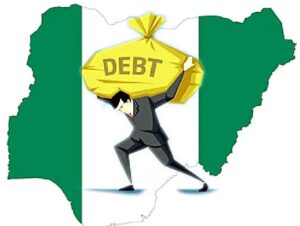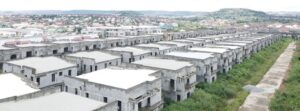


Inflation: The urgent need to tame the monster
In recent times, Nigeria has been facing the grim reality of hyperinflation, with its most profound manifestation since May 29, 2023, when President Bola Tinubu’s administration announced the removal of the fuel subsidy. This policy shift triggered an immediate and sharp rise in the prices of almost all goods and services, from fuel and transportation costs to everyday consumer goods. While the move was aimed at restructuring Nigeria’s economy, it also brought inflation to the forefront of national discourse, affecting ordinary citizens and businesses alike.
Currently, the purchasing power of the average Nigerian is eroded, with wages remaining stagnant as costs of living surge. The impact of inflation on Nigeria is undeniable. The most immediate effect is the soaring cost of living. Prices of food, housing, healthcare, and transportation have risen sharply, making it harder for ordinary Nigerians to meet their daily needs. Basic commodities that were once affordable have become luxuries, and the poor are bearing the brunt of this crisis. Inflation is also a key contributor to social instability, as it exacerbates poverty, hunger, and unemployment, leading to an increase in social vices and unrest.
In light of these developments, there is an urgent need for decisive action to curb the rising inflation. A comprehensive approach is required, which includes sound fiscal and monetary policies that focus on reducing demand while increasing supply. The Central Bank of Nigeria (CBN) must play a critical role in tightening the money supply to control inflation, while government policies should be aimed at boosting local production and reducing reliance on imports.
Another crucial aspect is the fight against corruption and mismanagement of resources. Good governance, transparency, and accountability must be at the heart of any effort to stabilise the economy. It is not enough to simply adopt fiscal measures; the political will to eliminate corruption and ensure that economic policies benefit the people is paramount. There must be a concerted effort to ensure that resources are used efficiently and that there is no wastage or diversion of funds meant for critical infrastructure and development projects.
Additionally, addressing inflation expectations through clear communication and strategic planning is vital. If citizens and businesses perceive inflation as an inevitable consequence of government inaction, they are likely to engage in hoarding or speculation, further driving prices up. Therefore, instilling confidence in the government’s ability to manage the economy is essential to preventing a cycle of panic buying and price instability.
Nigeria’s current inflationary challenge is not insurmountable, but it requires a multi-pronged strategy. The government must balance the short-term challenges with long-term economic planning. Economic diversification, reducing dependence on oil exports, and fostering an environment that encourages local manufacturing and entrepreneurship will go a long way in mitigating the pressures of inflation.
Nigeria must act now to address the growing inflation crisis. While the solutions are complex, they are not beyond reach. With a commitment to sound economic policies, a focus on transparency, and a willingness to confront corruption, Nigeria can put the brakes on inflation and return to a path of sustainable economic growth. The time to act is now—delaying these necessary reforms will only deepen the crisis and make it more difficult to recover. Only through collective determination and political will can Nigeria overcome this challenge and secure a brighter future for all its citizens.



